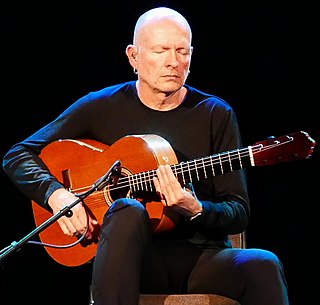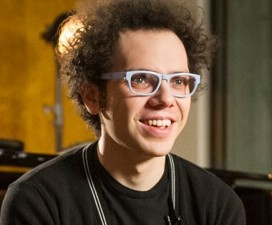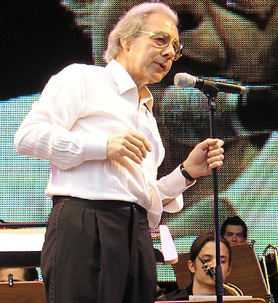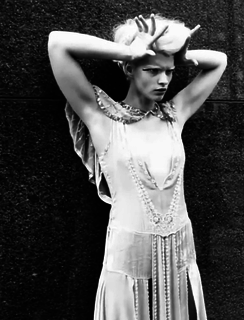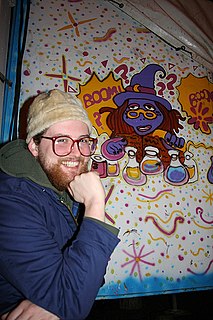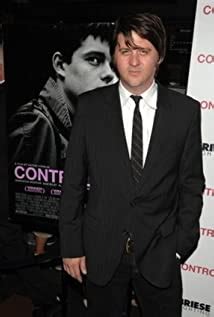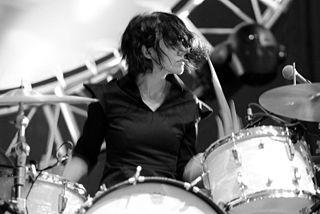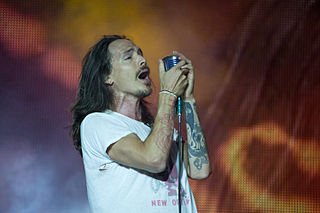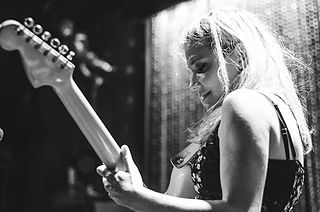A Quote by Alexandre Desplat
It was quite frightening to be asked to write the music of a Western because there are so many things that you can refer to that can be cliche, and that could really poison your mind, from Morricone, to Bernstein, to Neil Young. So much music has been written for Westerns, that you wonder how you're going to find a new or different idea.
Related Quotes
I am not really thinking, I am just, working with the music. And people have asked me, why don't you say more, or why do you not have singers, or why don't you sing? I think it's because, if I would have words for what I am doing, I I could write. But I really don't. It's a whole different thing. And I think it's one of the beauty of instrumental music is that it can be background. It can be what people call "easy listening." But it's really one of those things where it's as much as you are willing to give it.
The weirdest thing I've been fascinated with nowadays is the new contemporary country music, which to me sounds like very strange '70s pop, and sometimes like rock music. But some of the themes in there - maybe it's because I know how the songs were written, but it really does sound like it was written by two or three people, with the idea to appeal to the most general audience.
I was an actor when I was a teenager and it could have been the direction that I headed in. But music and my relationship with music is quite deep, and it really is the nucleus of my creativity. So I gave up acting so I could pursue music fully, and I never thought about really going back. And then [director] Lee Daniels met me and wanted to work with me, and that's how it started.
I write my music with the idea that it will appeal to all of those people, and I want them to go in with all the history that's within all of us - all the things that they've listened to in the backs of their minds, whether it's country music or minimal techno, or classical music or whatever. I want them to bring that excitement, that love, or that hate, or whatever it might be, to my music. I feel that my music draws on so many different things.
I was very young, maybe five. The opera was very... I was attracted to opera to the point that I think it's the reason I started to write music for films. I never studied. There are film and music school that teach you how to write music. I never studied that. But the influence of opera, which is a combination of storyline, visuals, staging, plus music... that was perhaps the best school I could have had. That's what gave me the idea of coming to Hollywood to write music for films.
It's so hard to give beauty a meaning. I actually find quite a lot of beauty in really painful things. Really grotesque things. Things that are disturbing. I think as you go and as you see things in the world, your idea of beauty expands and I think I'm lucky because I've been exposed to so many different types of beauty and I've realized that any feeling you cherish is beautiful.
When I went to school, it was really just to immerse myself in listening to, studying, and making music. I came out like, "How is this going to be more than a hobby I'm always paying off debt for?" I could've sat at a desk and written pieces for orchestras that never would have been played, or I could've written music for me as a performer. I play electronics, and the places I was gonna be playing were bass clubs and house parties.
One of the things I always underscore when I teach criticism is that young critics, or would be critics, frequently have this illusion that if they write about music they're somehow part of music, or if they write about movies they're part of movies, or of they write about theater they're part of theater, or write about literature. Writing is a part of literature, we belong the species of literature. If you add all the music reviews together that have ever been written, they don't create two notes of music.
You can learn to write. But what you write is something that depends on your taste and on your vision or whatever. Also, of course, the music I listened to inspired my idea of music. When people ask me "Where's your inspiration? Where does it come from?" I have no idea. Music is about music. Not about life and love.
Because I work so much, people think that I have a team writing for me, but that's not why I chose to write music for films. I chose to write music because I like to write music. So every single note that comes out of my studio is written by me, and I wouldn't be able to do two movies at the same time.
I think the Control has really opened up the music to a whole new audience. I've met kids recently, kids of people I know who are 14 and 17 who love Joy Division and have been a fan before the movie, which is really weird. How does that happen? I have no idea. But, the music that's out there today is heavily influenced by these bands from the 70s and 80s like Joy Division. I want them to take away a little bit of what Ian Curtis was and, at such a young age, he had so much going on.
We, Autolux band, write in very different ways; sometimes we play with the band and write music first and then form vocal parts and lyrics. Or I'll find some music, or a guitar part or something, and I'll just write an entire sketch of an idea from that. So I think things have always been that way, it's just that this time around we had some more obstacles off and on all the time.


